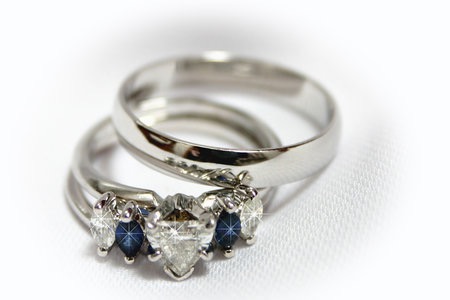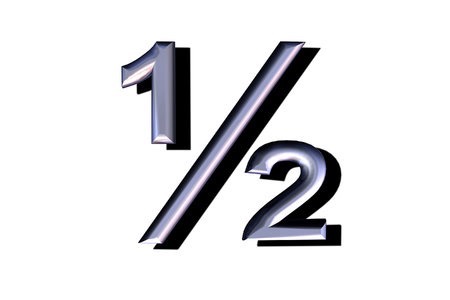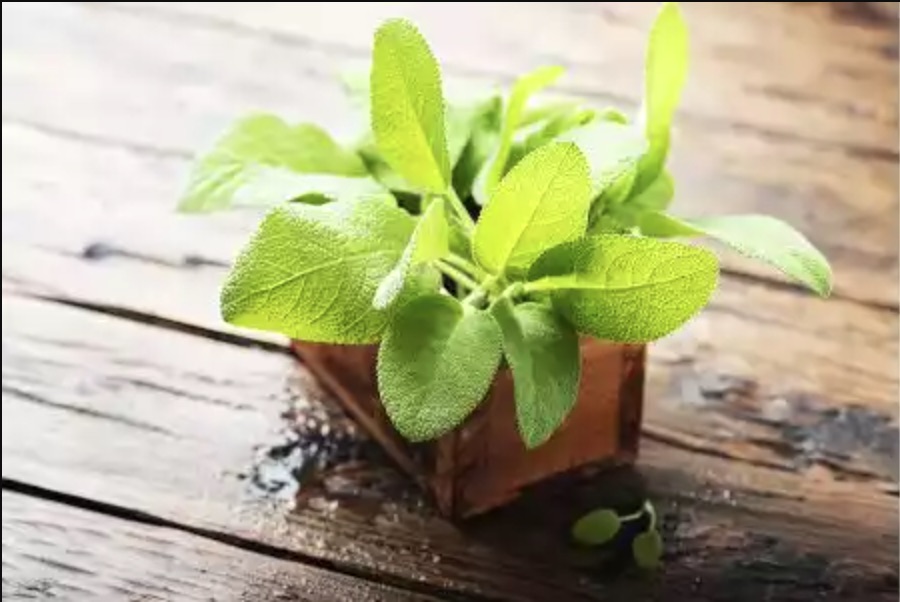*
Các cổ động viên đang hò reo bên dưới sân khấu.
The fans are cheering below the stage.
Die Fans jubeln unter der Bühne.
Los fans están animando debajo del escenario.
Les fans applaudissent sous la scène.
I tifosi esultano sotto il palco.
แฟนๆ กองเชียร์อยู่ด้านล่างเวที
팬들은 관중석에서 환호성을 질렀다.
歌迷在台下歡呼。
歌迷 在 台下 欢呼 。 *
Anh ấy và tôi bằng tuổi nhau.
He and I are the same age.
Er und ich sind im gleichen Alter.
Él y yo tenemos la misma edad.
Lui et moi avons le même âge.
Lui e io abbiamo la stessa età.
เขากับฉันอายุเท่ากัน
그는 나와 같은 나이입니다.
他與我同齡。
他 与 我 同龄 。 *
Anh ấy là tổng giám đốc ở công ty.
He is the general manager at the company.
Er ist der Generaldirektor des Unternehmens.
Es el director general de la empresa.
Il est le directeur général de l'entreprise.
È il direttore generale dell'azienda.
เขาเป็นผู้จัดการทั่วไปของบริษัท
그는 회사의 총책임자입니다.
他是公司的總經理。
他 是 公司 的 总经理 。 *
Bạn có thể nói bao nhiêu thứ tiếng?
How many languages do you speak?
Wie viele Sprachen sprechen Sie?
¿Cuántos idiomas habla?
Combien de langues parlez-vous ?
Quante lingue parli?
คุณพูดได้กี่ภาษา?
얼마나 많은 언어를 말할 수 있습니까?
你會說幾種語言?
你 会 说 几种 语言 ? *
Họ có một cuộc hôn nhân hạnh phúc.
They have a happy marriage.
Sie haben eine glückliche Ehe.
Tienen un matrimonio feliz.
Ils ont un mariage heureux.
Hanno un matrimonio felice.
พวกเขามีการแต่งงานที่มีความสุข
그들의 결혼 생활은 매우 행복합니다.
他們的婚姻很美滿。
他们 的 婚姻 很 美满 。 *
Anh ấy là phó giám đốc của công ty chúng tôi.
He is the deputy manager of our company.
Er ist der stellvertretende Direktor unseres Unternehmens.
Es el subdirector de nuestra empresa.
Il est le directeur adjoint de notre société.
È il vicedirettore della nostra azienda.
เขาเป็นรองผู้จัดการบริษัทของเรา
그는 우리 회사의 차장입니다.
他是我們公司的副經理。
他 是 我们 公司 的 副经理 。 *
Điều kiện sống ở ngôi làng này vẫn còn rất thô sơ.
The living conditions in this village are still very primitive.
Die Lebensbedingungen in diesem Dorf sind noch sehr primitiv.
Las condiciones de vida en este pueblo siguen siendo muy primitivas.
Les conditions de vie dans ce village sont encore très primitives.
Le condizioni di vita in questo villaggio sono ancora molto primitive.
สภาพความเป็นอยู่ของหมู่บ้านแห่งนี้ยังเป็นที่ดั้งเดิมมาก
이 마을의 생활 조건은 여전히 원시적입니다.
這個村子的生活條件仍然很原始。
这个 村子 的 生活 条件 仍然 很 原始 。 *
Có một ngôi làng nhỏ gần đó.
There is a small village nearby.
Es gibt ein kleines Dorf in der Nähe.
Hay un pequeño pueblo cerca.
Il y a un petit village à proximité.
C'è un piccolo villaggio nelle vicinanze.
มีหมู่บ้านเล็กๆ อยู่ใกล้ๆ
근처에 작은 마을이 있습니다.
附近有一個小村莊。
附近 有 一个 小 村庄 。 *
Ngôn ngữ chính thức của Trung Quốc là ngôn ngữ Hán (Trung Quốc).
The official language of China is the Han language (Chinese).
Die offizielle Sprache Chinas ist die Han-Sprache (Chinesisch).
La lengua oficial de China es el idioma Han (chino).
La langue officielle de la Chine est la langue Han (le chinois).
La lingua ufficiale della Cina è la lingua Han (cinese).
ภาษาราชการของประเทศจีนคือ ภาษาฮั่น (ภาษาจีน)
중국의 공식 언어는 중국어입니다.
中國的官方語言是漢語。
中国 的 官方语言 是 汉语 。 *
Cô là sinh viên khoa ngoại ngữ.
She is a student in the foreign languages department.
Sie ist Studentin in der Fremdsprachenabteilung.
Es una estudiante del departamento de lenguas extranjeras.
Elle est étudiante dans le département des langues étrangères.
È una studentessa del dipartimento di lingue straniere.
เป็นนักศึกษาคณะภาษาต่างประเทศ
그녀는 외국어 학과 학생입니다.
她是外語系的學生。
她 是 外语系 的 学生 。 *
Vị trí của cô ấy là quản lý bộ phận.
Her position is division manager.
Ihre Position ist Abteilungsleiterin.
Su cargo es el de jefe de división.
Son poste est celui de chef de division.
La sua posizione è manager di divisione.
ตำแหน่งของเธอคือผู้จัดการแผนก
그녀의 직위는 부서장이다.
她的職務是部門主管。
她 的 职务 是 部门 主管 。 *
Có một ngôi làng dưới chân đồi.
There is a village at the foot of the hill.
Am Fuße des Hügels befindet sich ein Dorf.
Hay un pueblo al pie de la colina.
Il y a un village au pied de la colline.
C'è un villaggio ai piedi della collina.
มีหมู่บ้านอยู่ที่เชิงเขา
산기슭에 마을이 있다.
山腳下有一個村莊。
山脚下 有 一个 村庄 。 *
Anh lật sang trang tiếp theo.
He turns to the next page.
Er schlägt die nächste Seite auf.
Pasó a la siguiente página.
Il est passé à la page suivante.
Si voltò alla pagina successiva.
เขาพลิกไปที่หน้าถัดไป
그는 책을 다음 페이지로 넘겼다.
他把書翻到下一頁。
他 把 书 翻到 下 一页 。 *
Ngôn ngữ là cơ sở của giao tiếp.
Language is the basis of communication.
Sprache ist die Basis der Kommunikation.
El lenguaje es la base de la comunicación.
La langue est la base de la communication.
La lingua è la base della comunicazione.
ภาษาเป็นพื้นฐานของการสื่อสาร
언어는 의사소통의 기초입니다.
語言是交流的基礎。
语言 是 交流 的 基础 。 *
Tôi đang háo hức mong được về nhà.
I am eagerly looking forward to getting home.
Ich kann es kaum erwarten, nach Hause zu kommen.
Estoy deseando llegar a casa.
J'ai hâte de rentrer chez moi.
Non vedo l'ora di tornare a casa.
ฉันตั้งหน้าตั้งตารอที่จะกลับบ้าน
집에 갈 날을 간절히 고대하고 있습니다.
我急切地盼望著回家。
我 急切 地 盼望着 回家 。 *
Cô ấy là thư ký của quản lý.
She is the manager's secretary.
Sie ist die Chefsekretärin.
Ella es la secretaria del gerente.
Elle est la secrétaire du directeur.
È la segretaria del direttore.
เธอเป็นเลขาของผู้จัดการ
그녀는 매니저의 비서입니다.
她是經理的秘書。
她 是 经理 的 秘书 。 *
Bánh có tỷ lệ đường cao.
Cakes have a high percentage of sugar.
Kuchen haben einen hohen Zuckeranteil.
Los pasteles tienen un alto porcentaje de azúcar.
Les gâteaux ont un pourcentage élevé de sucre.
Le torte hanno un'alta percentuale di zucchero.
เค้กมีเปอร์เซ็นต์น้ำตาลสูง
케이크는 당도가 높습니다.
蛋糕含糖量高。
蛋糕 含糖量 高 。 *
Cô ấy sẽ biểu diễn trên sân khấu tối nay.
She is giving a performance on stage this evening.
Sie gibt heute Abend eine Aufführung auf der Bühne.
Esta noche va a actuar en el escenario.
Elle donne une représentation sur scène ce soir.
Stasera si esibirà sul palco.
เธอกำลังแสดงบนเวทีเย็นนี้
그녀는 오늘 밤 무대에서 공연할 것이다.
她今晚登臺獻藝。
她 今晚 登台 献艺 。 *
Có một ngôi làng nhỏ phía trước.
There is a small village up ahead.
Vor uns liegt ein kleines Dorf.
Hay un pequeño pueblo más adelante.
Il y a un petit village plus loin.
C'è un piccolo villaggio più avanti.
ข้างหน้ามีหมู่บ้านเล็กๆ
앞에 작은 마을이 있다.
前面有一個小村莊。
前面 有 一个 小 村庄 。 *
Vụ cháy gây nhiều thiệt hại.
The fire caused a lot of damage.
Der durch das Feuer verursachte Schaden war schwerwiegend.
El incendio causó muchos daños.
L'incendie a causé beaucoup de dégâts.
L'incendio ha causato molti danni.
ไฟไหม้ทำให้เกิดความเสียหายมากมาย
화재로 인한 피해는 심각했습니다.
火災造成的損失嚴重。
火灾 造成 的 损失 严重 。 *
Cậu nhỏ rất can đảm.
The small boy is very courageous.
Der kleine Junge ist sehr mutig.
El pequeño es muy valiente.
Le petit garçon est très courageux.
Il bambino è molto coraggioso.
เด็กน้อยใจกล้ามาก
어린 소년은 매우 용감합니다.
小男孩很勇敢。
小男孩 很 勇敢 。 *
Anh ta có một khoản vay thế chấp nhà là một gánh nặng.
He has a home mortgage loan that is a heavy burden.
Er ist mit einer schweren Hypothek belastet.
Tiene un préstamo hipotecario que es una pesada carga.
Il a un prêt immobilier qui est un lourd fardeau.
Ha un mutuo ipotecario sulla casa che è un pesante fardello.
เขามีเงินกู้จำนองบ้านที่เป็นภาระหนัก
그는 무거운 담보 대출을 짊어지고 있습니다.
他背負著沉重的房屋貸款。
他 背负着 沉重 的 房屋贷款 。 *
Hành lý chất thành đống dưới đất.
Luggage is piled up on the ground.
Auf dem Boden stapelt sich das Gepäck.
El equipaje está amontonado en el suelo.
Les bagages sont empilés sur le sol.
Il bagaglio è ammucchiato per terra.
สัมภาระถูกกองอยู่บนพื้น
땅은 짐으로 가득 차 있었다.
地上堆滿了行李。
地上 堆满 了 行李 。 *
Tôi sử dụng bất động sản để thế chấp.
I use real estate as a mortgage.
Ich benutze die Immobilie, um einen Kredit zu sichern.
Utilizo bienes raíces como hipoteca.
J'utilise l'immobilier comme une hypothèque.
Uso l'immobile come mutuo.
ฉันใช้อสังหาริมทรัพย์เป็นการจำนอง
부동산을 담보로 사용하고 있습니다.
我用房產來抵押貸款。
我用 房产 来 抵押 贷款 。 *
Chiếc xe này bị hư hỏng nặng.
This car is badly damaged.
Dieses Auto ist stark beschädigt.
Este coche está muy dañado.
Cette voiture est très endommagée.
Questa vettura è gravemente danneggiata.
รถคันนี้เสียหายมาก
차가 고장났습니다.
車子已經殘破了。
车子 已经 残破 了 。 *
Tôi đã đến tuổi nghỉ hưu.
I have reached retirement age.
Ich habe das Rentenalter erreicht.
He llegado a la edad de jubilación.
J'ai atteint l'âge de la retraite.
Ho raggiunto l'età della pensione.
ฉันถึงวัยเกษียณ
정년퇴직 연령에 이르렀습니다.
我已到了退休的年齡。
我 已 到 了 退休 的 年龄 。 *
Đây là lối đi VIP.
This is the VIP passageway.
Das ist der VIP-Zugang.
Este es el pasillo VIP.
C'est le passage VIP.
Questo è il passaggio VIP.
นี่คือทางเดินวีไอพี
VIP 채널입니다.
這是貴賓通道。
这是 贵宾 通道 。 *
Ở đây đặc biệt thiếu nguồn nước.
There is a real water shortage here.
Es mangelt vor allem an Wasser.
Aquí hay una verdadera escasez de agua.
Il y a une véritable pénurie d'eau ici.
C'è una vera carenza d'acqua qui.
ขาดแคลนน้ำอย่างแท้จริงที่นี่
특히 이곳은 수자원이 부족합니다.
這裡特別缺乏水資源。
这 里 特别 缺乏 水资源 。 *
Cô lật sang trang tiếp theo của cuốn sách.
She turned to the next page of the book.
Sie schlug die nächste Seite des Buches auf.
Pasa a la siguiente página del libro.
Elle passe à la page suivante du livre.
Si voltò alla pagina successiva del libro.
เธอพลิกไปที่หน้าถัดไปของหนังสือ
그녀는 책을 다음 페이지로 넘겼다.
她把書翻到下一頁。
她 把 书 翻到 下 一页 。 *
Anh ta định kiểm tra hành lý của mình.
He plans to check in his luggage.
Er beabsichtigt, sein Gepäck aufzugeben.
Piensa facturar su equipaje.
Il prévoit d'enregistrer ses bagages.
Ha in programma di registrare i suoi bagagli.
เขาวางแผนที่จะเช็คอินในกระเป๋าเดินทางของเขา
그는 자신의 수하물을 확인하려고 합니다.
他打算托運他的行李。
他 打算 托运 他 的 行李 。 *
Tôi đang bảo vệ hành lý của cha tôi.
I am watching the luggage for my father.
Ich passe für meinen Vater auf das Gepäck auf.
Estoy cuidando el equipaje de mi padre.
Je surveille les bagages pour mon père.
Sto controllando i bagagli per mio padre.
ฉันกำลังดูกระเป๋าเดินทางสำหรับพ่อของฉัน
나는 아빠가 그의 짐을 돌보는 것을 돕고 있다.
我在幫爸爸看管行李。
我 在 帮 爸爸 看管 行李 。 *
Học ngoại ngữ cần phải học nhiều từ.
Learning a foreign language requires learning many words.
Das Erlernen einer Fremdsprache erfordert das Erlernen vieler Wörter.
Aprender una lengua extranjera requiere aprender muchas palabras.
Pour apprendre une langue étrangère, il faut apprendre de nombreux mots.
L'apprendimento di una lingua straniera richiede l'apprendimento di molte parole.
การเรียนรู้ภาษาต่างประเทศต้องเรียนรู้คำศัพท์มากมาย
외국어를 배우려면 많은 어휘를 배워야 합니다.
學外語得學很多詞彙。
学 外语 得 学 很多 词汇 。 *
Đảm bảo rằng bạn có liều lượng chính xác khi dùng thuốc.
Make sure that you have the correct dosage when taking medicine.
Nehmen Sie die richtige Dosis an Medikamenten.
Asegúrate de tener la dosis correcta cuando tomes la medicina.
Assurez-vous que vous avez le bon dosage lorsque vous prenez des médicaments.
Assicurati di avere il dosaggio corretto quando prendi il medicinale.
ตรวจสอบให้แน่ใจว่าคุณมีปริมาณที่ถูกต้องเมื่อทานยา
약을 복용할 때 복용량을 마스터하십시오.
服藥要掌握好劑量。
服药 要 掌握 好 剂量 。 *
Đồ uống có cồn nên được tiêu thụ vừa phải.
Alcoholic beverages should be consumed in moderation.
Trinken Sie Alkohol in Maßen.
Las bebidas alcohólicas deben consumirse con moderación.
Les boissons alcoolisées doivent être consommées avec modération.
Le bevande alcoliche dovrebbero essere consumate con moderazione.
เครื่องดื่มแอลกอฮอล์ควรบริโภคในปริมาณที่พอเหมาะ
적당히 마신다.
飲酒要適量。
饮酒 要 适量 。 *
Cô mong có một cuộc hôn nhân hạnh phúc.
She looks forward to a happy marriage.
Sie freut sich auf eine glückliche Ehe.
Espera un matrimonio feliz.
Elle attend avec impatience un mariage heureux.
Non vede l'ora di un matrimonio felice.
เธอตั้งหน้าตั้งตารอการแต่งงานที่มีความสุข
그녀는 행복한 결혼 생활을 기대하고 있습니다.
她期待幸福的婚姻。
她 期待 幸福 的 婚姻 。 *
Cây bút nằm giữa các trang của cuốn sổ.
The pen is between the pages of the notebook.
Der Stift befindet sich zwischen den Seiten des Notizbuchs.
El bolígrafo está entre las páginas del cuaderno.
Le stylo est entre les pages du cahier.
La penna è tra le pagine del taccuino.
ปากกาอยู่ระหว่างหน้าของสมุดบันทึก
펜은 메모장에 있습니다.
筆夾在記事本裡。
笔 夹 在 记事本 里 。 *
Có một con vẹt trong lồng chim.
There is a parrot in the birdcage.
Im Vogelkäfig befindet sich ein Papagei.
Hay un loro en la jaula.
Il y a un perroquet dans la cage à oiseaux.
C'è un pappagallo nella gabbia per uccelli.
มีนกแก้วอยู่ในกรงนก
새장에 앵무새가 있습니다.
鳥籠裡有一隻鸚鵡。
鸟笼 里 有 一只 鹦鹉 。 *
Món tráng miệng này đã được người quản lý giới thiệu.
This dessert is recommended by the manager.
Dieses Dessert wird von dem Geschäftsführer empfohlen.
Este postre fue recomendado por el gerente.
Ce dessert a été recommandé par le directeur.
Questo dessert è stato consigliato dal gestore.
ผู้จัดการแนะนำขนมนี้
사장님이 추천하는 디저트입니다.
這個甜點是經理推薦的。
这个 甜点 是 经理 推荐 的 。 *
Cô ấy buộc vết thương của tôi bằng băng gạc.
She uses a gauze bandage to dress my wound.
Sie benutzt einen Verband aus Mull, um meine Wunde zu verbinden.
Me vendó la herida con una gasa.
Elle a pansé ma blessure avec de la gaze.
Ha fasciato la mia ferita con una garza.
เธอพันแผลของฉันด้วยผ้ากอซ
그녀는 거즈로 내 상처를 붕대로 감았다.
她用紗布幫我包紮傷口。
她 用 纱布 帮 我 包 紮 伤口 。 *
Cô ghen tị với cuộc hôn nhân hạnh phúc của người bạn tốt của mình.
She is envious of the happy marriage of her good friend.
Sie ist neidisch auf die glückliche Ehe ihrer guten Freundin.
Está celosa del feliz matrimonio de su buena amiga.
Elle est jalouse de l'heureux mariage de sa bonne amie.
È gelosa del matrimonio felice della sua buona amica.
เธออิจฉาการแต่งงานที่มีความสุขของเพื่อนที่ดีของเธอ
그녀는 좋은 친구들의 행복한 결혼 생활을 부러워했습니다.
她很羡慕好朋友的幸福婚姻。
她 很 羡慕 好 朋友 的 幸福 婚姻 。 *
Tôi sẽ vứt rác ra ngoài.
I take out the garbage.
Ich bringe den Müll raus.
Voy a tirar la basura.
Je vais jeter les ordures.
Butto via la spazzatura.
ฉันจะทิ้งขยะ
쓰레기를 버리겠습니다.
我去扔垃圾。
我 去 扔 垃圾 。 *
Cỗ xe rất rộng rãi.
The carriage is very spacious.
Das Abteil ist sehr geräumig.
El vagón es muy espacioso.
La voiture est très spacieuse.
La carrozza è molto spaziosa.
ห้องโดยสารกว้างขวางมาก
수납공간이 매우 넓습니다.
車廂裡很寬敞。
车厢 里 很 宽敞 。 *
Hãy ném những thứ vào thùng rác.
Please throw the things into the garbage can.
Bitte werfen Sie die Sachen in den Mülleimer.
Por favor, tira las cosas al cubo de la basura.
S'il vous plaît, jetez ces choses dans la poubelle.
Per favore getta le cose nel bidone della spazzatura.
กรุณาทิ้งสิ่งของลงในถังขยะ
쓰레기는 쓰레기통에 버려주세요.
請把東西扔到垃圾箱裡。
请 把 东西 扔 到 垃圾箱 里 。 *
Rất nhiều rác đã chất thành đống ở đây.
A great deal of garbage has piled up here.
Hier hat sich viel Müll angehäuft.
Una gran cantidad de basura se ha acumulado aquí.
Une grande quantité d'ordures s'est accumulée ici.
Qui si è accumulata una grande quantità di spazzatura.
ขยะจำนวนมากสะสมอยู่ที่นี่
여기에 쓰레기가 많이 쌓여 있습니다.
這裡堆放了很多垃圾。
这 里 堆放 了 很多 垃圾 。 *
Bánh căm của chiếc ô tô bị hư hỏng trong vụ va chạm.
The wheel spokes of the car were damaged in the crash.
Die Radspeichen des Autos wurden bei dem Unfall beschädigt.
Los radios de las ruedas del coche se dañaron en el accidente.
Les rayons de la roue de la voiture ont été endommagés dans l'accident.
I raggi delle ruote dell'auto sono stati danneggiati nell'incidente.
ซี่ล้อของรถได้รับความเสียหายจากการชน
자동차의 스포크가 손상되었습니다.
汽車的輻條被撞壞了。
汽车 的 辐条 被 撞坏 了 。 *
Cô đã được chọn là Công chúa của cuộc thi sắc đẹp.
She has been selected Princess of the beauty pageant.
Sie wurde zur Prinzessin des Schönheitswettbewerbs gewählt.
Ha sido elegida princesa del concurso de belleza.
Elle a été choisie comme princesse du concours de beauté.
È stata selezionata come Principessa del concorso di bellezza.
เธอได้รับเลือกให้เป็นเจ้าหญิงแห่งการประกวดนางงาม
그녀는 미인 대회의 작은 여왕입니다.
她是選美小皇后。
她 是 选美 小 皇后 。 *
Ngọn lửa cọ đã mang đến tai họa cho ngôi làng.
The brush fire brought disaster to the village.
Das Buschfeuer brachte eine Katastrophe ins Dorf.
El incendio de matorrales provocó un desastre en el pueblo.
Le feu de brousse a provoqué un désastre dans le village.
Il fuoco della boscaglia ha portato il disastro al villaggio.
ไฟป่านำภัยพิบัติมาสู่หมู่บ้าน
산불은 마을을 고통스럽게 했습니다.
山火令村莊遭殃。
山火 令 村庄 遭殃 。 *
Bạn đã bao giờ thử món lạp xưởng Trung Quốc chưa?
Have you ever tried Chinese sausage?
Haben Sie schon einmal chinesische Wurst probiert?
¿Has probado alguna vez las salchichas chinas?
Avez-vous déjà essayé la saucisse chinoise ?
Hai mai provato la salsiccia cinese?
คุณเคยลองไส้กรอกจีนหรือไม่?
중국 소세지 먹어봤어?
你吃過中國的臘腸嗎?
你 吃 过 中国 的 腊肠 吗 ? *
Động cơ của xe đã bị hư hỏng.
The car's engine has been damaged.
Der Motor des Autos wurde beschädigt.
El motor del coche ha sido dañado.
Le moteur de la voiture a été endommagé.
Il motore dell'auto è stato danneggiato.
เครื่องยนต์ของรถได้รับความเสียหาย
자동차 엔진이 손상되었습니다.
汽車的引擎損壞了。
汽车 的 引擎 损坏 了 。 *
Tóc ngắn hiện đang là xu hướng thịnh hành.
Short hair is all the rage now.
Kurze Haare liegen jetzt voll im Trend.
El pelo corto está de moda ahora.
Les cheveux courts font fureur maintenant.
I capelli corti sono di gran moda ora.
ผมสั้นที่กำลังมาแรงในตอนนี้
짧은 발견이 대세입니다.
短發現在風靡一時。
短发 现在 风靡一时 。 *
Bọn tội phạm thật man rợ.
The criminals are savage.
Die Verbrecher sind wild.
Los criminales son salvajes.
Les criminels sont sauvages.
I criminali sono selvaggi.
อาชญากรเป็นคนป่าเถื่อน
범죄자들이 만연합니다.
罪犯很猖狂。
罪犯 很 猖狂 。 *
Tay cô ấy bị quấn băng.
Her hand is wrapped with a bandage.
Ihre Hand ist mit einem Verband umwickelt.
Su mano está envuelta con una venda.
Sa main est enveloppée d'un bandage.
La sua mano è avvolta da una benda.
มือของเธอถูกพันด้วยผ้าพันแผล
그녀의 손에는 붕대가 있었다.
她的手上纏著繃帶。
她 的 手上 缠 着 绷带 。 *
Cô ấy đang kiểm tra đồ cũ của rượu.
She is checking the wine's vintage.
Sie überprüft den Jahrgang des Weins.
Ella está comprobando la cosecha del vino.
Elle vérifie le millésime du vin.
Sta controllando l'annata del vino.
เธอกำลังตรวจสอบเหล้าองุ่นของไวน์
그녀는 와인의 빈티지를 확인하고 있습니다
她在看紅酒的貯藏年份。
她 在 看 红酒 的 贮藏 年份 。 *
Họ là họ hàng của nhau bằng hôn nhân.
They are relatives by marriage.
Sie sind Verwandte aus der Ehe.
Son parientes por matrimonio.
Ils sont parents par alliance.
Sono parenti per matrimonio.
พวกเขาเป็นญาติกันโดยการแต่งงาน
그들은 사위입니다.
他們是親家。
他们 是 亲家 。 *
Những ngôi nhà trong ngôi làng này được bày biện ngăn nắp.
The houses in this village are laid out neatly.
Die Häuser in diesem Dorf sind ordentlich angelegt.
Las casas de este pueblo están ordenadas.
Les maisons de ce village sont bien agencées.
Le case di questo villaggio sono disposte in modo ordinato.
บ้านในหมู่บ้านนี้จัดวางอย่างเรียบร้อย
이 마을 집은 그대로입니다.
這個村莊屋舍儼然。
这个 村庄 屋舍 俨然 。 *
Kỉ niệm không rơi vào quên lãng theo thời gian.
Memories do not fall into oblivion with the passage of time.
Erinnerungen geraten im Laufe der Zeit nicht in Vergessenheit.
Los recuerdos no caen en el olvido con el paso del tiempo.
Les souvenirs ne tombent pas dans l'oubli avec le temps.
I ricordi non cadono nell'oblio con il passare del tempo.
ความทรงจำไม่หลงลืมตามกาลเวลา
추억은 시간이 지나도 소멸되지 않습니다.
回憶不會隨著時間而湮滅。
回忆 不会 随着 时间 而 湮灭 。
| |
|
| SAIGONESE |
|---|
| B02 |  tiếng Anh tiếng Anh |  English language English language |  Englische Sprache Englische Sprache |
|
| B02 |  tiếng Trung tiếng Trung |  Chinese language Chinese language |  Chinesische Sprache Chinesische Sprache |
|
| B02 |  tiếng Việt tiếng Việt |  Vietnamese language Vietnamese language |  Vietnamesische Sprache Vietnamesische Sprache |
|
| B05 |  tuổi tuổi |  age age |  Alter Alter |
|
| E013 |  quản lý quản lý |  manager manager |  Geschäftsführer Geschäftsführer |
|
| E027 |  Cho tui nhắn lại được không? Cho tui nhắn lại được không? |  Can I leave a message? Can I leave a message? |  Kann ich eine Nachricht hinterlassen? Kann ich eine Nachricht hinterlassen? |
|
| E112 |  tin nhắn tin nhắn |  text message text message |  Textnachricht Textnachricht |
|
| E056 |  chuồng chuồng |  cage cage |  Käfig Käfig |
|
| E071 |  hành lý hành lý |  luggage luggage |  Gepäck Gepäck |
|
| E095 |  quản lý quản lý |  manager manager |  Geschäftsführer Geschäftsführer |
|
| E181 |  trung bình trung bình |  average average |  Durchschnitt Durchschnitt |
|
| E200 |  giám đốc giám đốc |  manager, director manager, director |  Manager, Direktor Manager, Direktor |
|
| I046 |  gói gói |  package package |  Paket Paket |
|
| I047 |  động viên động viên |  encourage encourage |  ermutigen ermutigen |
|
| I055 |  tin nhắn tin nhắn |  a text message a text message |  eine Textnachricht eine Textnachricht |
|
| I070 |  nhà kho nhà kho |  storage room storage room |  Lagerraum Lagerraum |
|
| I100 |  ban quản lý ban quản lý |  management board management board |  Vorstand Vorstand |
|
| I100 |  phí quản lý phí quản lý |  management fee management fee |  Verwaltungsgebühr Verwaltungsgebühr |
|
| I108 |  ngôi làng ngôi làng |  village village |  Dorf Dorf |
|
| I112 |  chuồng chuồng |  cage cage |  Käfig Käfig |
|
| I159 |  gói gói |  package package |  Paket Paket |
|
| I168 |  hôn nhân hôn nhân |  marriage marriage |  Ehe Ehe |
|
| I176 |  thiệt thòi thiệt thòi |  suffer, to be at a disadvantage suffer, to be at a disadvantage |  leiden, benachteiligt werden leiden, benachteiligt werden |
|
| I184 |  đính hôn đính hôn |  engagement engagement |  Engagement Engagement |
|
| I191 |  tuổi tác tuổi tác |  age age |  Alter Alter |
|
| I206 |  trung bình trung bình |  average average |  Durchschnitt Durchschnitt |
|
| I208 |  quản lý quản lý |  management management |  Verwaltung Verwaltung |
|
| I023 |  lồng chim lồng chim |  bird cage bird cage |  Vogelkäfig Vogelkäfig |
|
| I023 |  chuồng chuồng |  cage cage |  Käfig Käfig |
|
| I036 |  mát xa mát xa |  massage massage |  Massage Massage |
|
| I043 |  quản lý quản lý |  manager manager |  Geschäftsführer Geschäftsführer |
|
| I095 |  hành lý hành lý |  luggage luggage |  Gepäck Gepäck |
|
| I096 |  hôn nhân hôn nhân |  marriage marriage |  Ehe Ehe |
|
| I117 |  làm tổn hại làm tổn hại |  damage damage |  Schaden Schaden |
|
| I127 |  tuổi hưu tuổi hưu |  retirement age retirement age |  Rentenalter Rentenalter |
|
| I133 |  bị tổn thương bị tổn thương |  damaged damaged |  beschädigt beschädigt |
|
| I136 |  cổ vũ cổ vũ |  cheer, encourage cheer, encourage |  jubeln, ermutigen jubeln, ermutigen |
|
| I161 |  xóm xóm |  neighbourhood,village neighbourhood,village |  Nachbarschaft,Dorf Nachbarschaft,Dorf |
|
| I162 |  xúc xích xúc xích |  sausage sausage |  Wurst Wurst |
|
| I173 |  thông điệp thông điệp |  message message |  Nachricht Nachricht |
|
| I174 |  hành lý hành lý |  luggage luggage |  Gepäck Gepäck |
|
| I198 |  hôn nhân hôn nhân |  marriage marriage |  Ehe Ehe |
|
| I217 |  tuổi tác tuổi tác |  age age |  Alter Alter |
|
| I223 |  một cuộc hôn nhân một cuộc hôn nhân |  a marriage a marriage |  eine Ehe eine Ehe |
|
51 九日: nine days, ninth of the month: The package will arrive on the ninth. 152 上げる: raise, lift: He put the luggage on the rack. 184 人々: people: People in that village are very kind. 312 開く: open (books, eyes, etc.): Please open to page 32. 335 最初: first, outset: Please look at the beginning of page 5. 382 いとこ: cousin: My cousin and I are the same age. 528 外国語: foreign language: Learning a foreign language is hard. 715 重さ: weight: Please weigh this luggage. 724 送る: send: I sent a package to his house. 805 まとめる: gather together, put in order: She packed her luggage and left. 830 経営: management, operation: Our company is well managed. 849 残す: leave, leave undone: She left a message. 851 ページ: page: Please open your textbooks to page 36. 883 時代: age, era: We're living in the age of convenience and speed. 885 代える: substitute for: I'll have the department manager attend in place of the president. 917 降ろす: unload, set down: He unloaded the luggage from the car. 931 立つ: stand, rise: He stood on stage. 952 不動産屋: real estate agent: My father's a real estate agent. 1010 楽しみ: enjoyment, something looked forward to: My father looks forward to traveling in his old age. 1084 以下: below: My math score was below average. 1262 完成: completion: Our new home page is now complete. 1388 捨てる: discard, abandon: Please throw away the garbage. 1473 断る: refuse, turn down: I turned down his marriage proposal. 1502 ごみ: trash: Today is the garbage day. 1647 預かる: take care of, keep: Please take care of my luggage. 1730 伝言: message: There's a message from the section chief. 1755 出張: business trip: The manager is on a business trip to Kyoto. 1853 小包: parcel, package: A package arrived from my friend in France. 1855 抱える: hold in one's arms: He is carrying some large luggage. 1897 とんとん: tapping, patting: I gave my mother a massage by patting on her shoulders. 1903 パーセント: percent: 80 percent of the people in this village are elderly. 1919 敬語: polite speech: Use polite language to customers. 1922 励ます: encourage, cheer up: The father encouraged his son. 1970 たっぷり: fully, amply: I got a full massage. 2070 中年: middle age: These symptoms are common in middle-aged men. 2071 中: middle, medium size: My child is of average height in class. 2087 下水: sewerage, drainage: The street is now under drainage construction. 2181 田畑: fields and rice paddies: There are a lot of fields and rice paddies in this village. 2241 南西: southwest: You'll see a village if you go in the southwest direction from here. 2275 低: low: He's working for a low wage. 2340 言づける: leave a message: I left her a message. 2342 言語: language: He's doing research on Asian languages. 2365 見合い: meeting with one's potential spouse: My parents had an arranged marriage. 2411 車掌: train conductor: The conductor went around the carriage. 2452 図る: strive for, work to: From now on we'll work to streamline management. 2464 毎度: every time: Thank you for your patronage. 2466 この度: this occasion: Congratulations on your marriage. 2496 部長: department head: I consulted the manager about my job. 2526 白菜: Chinese cabbage: She likes pickled nappa cabbage. 2574 無料: no charge, free: Beverages are free of charge. 2597 費やす: spend: I'm spending a considerable amount of time on language studies. 2627 段階: stage: At this stage, it is still early to decide. 2668 どうにか: somehow: I somehow managed to meet the deadline. 2680 最悪: worst: We somehow managed to avert the worst-case scenario. 2724 不足: lack, shortage: We've been facing a severe shortage of water this year. 2745 所々: here and there, in places: The pages in this book are torn here and there. 2770 区分: division, segment: This table shows the population divided into age groups. 2783 入れ物: container, holder: I have a lot of baggage, so I need a big container. 2801 重ねる: put (something) on top of another, pile up: Please pile up the luggage here. 2810 大量: large quantity, large amount: We had a large amount of garbage yesterday. 2813 重量: weight: This luggage is quite heavy. 2845 維持: maintenance, upkeep: Somehow she manages to stay healthy. 2870 長生き: long life, longevity: People in this village live a long life. 2882 生かす: apply, make use of: She's making use of her language skills in her job. 2890 わずか: meager, marginal: He lives on his meager savings. 2909 語学: language study: I'm going to study a foreign language abroad. 2995 問う: ask, question: Applicants of all ages are accepted. 3038 おばさん: middle-aged woman: Good afternoon, Mrs. (addressed to a familiar middle-aged woman). 3041 担ぐ: shoulder, carry: He came carrying large luggage. 3086 漁業: fishery: They are engaged in a fishing business. 3092 有利: advantage, profitable: Having qualifications is an advantage when looking for a job. 3093 不利: disadvantage: He's at a disadvantage now. 3100 収入: income: What's the average income in Japan? 3138 キャベツ: cabbage: I garnished it with shredded cabbage. 3170 残らず: with nothing left behind, without exception: I picked up all the garbage. 3206 持ち込む: bring in, carry on: I carried my luggage onto the plane. 3253 近代: modern times: Technology development in this modern age is truly amazing. 3293 強化: strengthening: The government is strengthening its native language education. 3306 乗り出す: lean forward, embark on: The ship has embarked on a long sea voyage. 3350 運用: operation, management: I consulted an accountant about how to manage my assets. 3425 超過: excess: This luggage is overweight. 3448 紙くず: wastepaper: Put wastepaper in the garbage bin. 3547 共通語: common language: English is a common language in India. 3575 漢語: words of Chinese origin: Kango is originally a language of loanwords. 3586 かんかん: furiously angry, in a rage: She is inflamed with rage. 3651 婚約: engagement: They are engaged. 3666 各自: each one, every individual: Please take your own garbage home. 3687 人民: (common) people: He engaged in politics for the benefit of common people. 3713 議題: topic for discussion, agenda: Today's agenda looks interesting. 3715 センター: center (for an activity, etc.), hub: We manage the entire operation of the factory in this center. 3724 議論: discussion, debate: My father likes to engage in debates. 3728 イメージ: image: He has a clean image. 3762 専用: exclusive use: This is a women-only carriage. 3782 並み: ordinary, average: He's not an average person. 3796 平均: average: I work for about eight hours a day on average. 3832 病死: death from sickness: The writer died of illness at the young age of 35. 3979 成人: adult, to be of age: My daughter will come of age this year. 3981 合成: composition, synthesis: Images can be synthesized with this software. 3986 形成: formation: You're in the important stage of life when bones are being formed. 4004 ステージ: stage: He stood on the stage. 4079 標準: standard, norm: Standard language is used in news broadcasts. 4132 実態: (actual) state, reality: The state of the company management is under investigation. 4193 組み合わせ: combination: The image would change according to color combinations. 4242 わく: well up: I felt courage well up within me after my friend's encouragement. 4254 時給: hourly wage: You get an hourly wage of 1000 yen in this job. 4319 現象: phenomenon: Mysterious phenomena have occurred in the village recently. 4328 言い換える: paraphrase, express in different words: He paraphrased it in easy language. 4332 交替: shift, taking turns: We took turns carrying the luggage home. 4340 水害: flood damage: A great number of people lost their homes due to flood damage. 4346 害: harm, damage: Too much drinking damages your health. 4349 被害: damage, harm: His house was damaged in the typhoon. 4373 管理: management, administration: She manages my schedule. 4390 逃げ出す: run away, escape: A tiger escaped from the cage. 4449 中流: mid-stream, middle reaches: That village is located near the middle reaches of the river. 4487 車庫: garage: I put the car in the garage. 4488 倉庫: warehouse, storehouse: Let's take these packages to the warehouse. 4552 ボーイ: waiter, porter: The porter carried the luggage for me. 4567 年寄り: elderly people, seniors: A lot of elderly people live in that village. 4659 ロッカー: locker: I put my luggage in a locker at the station. 4672 保守: conservation, keeping up: People in that village keep up traditions. 4731 積む: pile up, load: Please load the luggage into the car. 4870 辛い: harsh, severe: My manager was harsh in his evaluation of my work. 4884 村: village: I come from the next village. 4886 農村: farming village, agricultural community: I grew up in a farming village. 4888 農民: peasant, farmer: Farmers in the Middle Ages were poor. 4922 ちぎれる: be torn off, come off: It feels as though my arm could tear off because my luggage is so heavy. 4946 透明: transparent, clear: Please put the garbage out in a clear plastic bag. 4957 失望: disappointment, loss of hope: She was disappointed in her marriage life. 5001 産婦人科: obstetrics and gynecology department: A shortage of obstetrics and gynecology specialists has become a problem lately. 5014 高齢: advanced age, old age: He resigned as president due to his age. 5021 恋愛: romance, relationship: She's at that age when girls yearn for romance. 5065 迷信: superstition: The people in the village believe in superstitions. 5091 文化財: cultural heritage: This building is a national cultural heritage. 5112 めくる: turn over: He turned the page. 5113 損害: damage, harm: The town was greatly damaged in the typhoon. 5160 話し言葉: spoken language: Spoken and written languages are a little different. 5161 書き言葉: written language: Written language and spoken language are quite different sometimes. 5171 普及: spread, diffusion: Garbage recycling has become widespread. 5175 扱う: handle, deal with: Please handle this luggage with care. 5224 再生: playback: I played back the messages on the answering machine. 5228 解放: release, setting free: I'm glad that the hostage has been released. 5265 悲劇: tragedy: We must not repeat that tragedy. 5519 谷: valley: The village is in a deep valley. 5627 幕: curtain: The stage curtain rose. 5684 包帯: bandage: Her hand was covered with a bandage. 5852 勇気: courage: He's courageous. 5891 祈る: pray, wish for: Everyone is praying for the safety of the hostage. 5931 峠: mountain pass, ridge: You'll see a village when you go over this mountain pass. 5946 引き上げる: withdraw, salvage: The sunken ship was salvaged. 5996 揉む: rub, massage: Please massage my shoulders. 6008 歳月: time: The passage of the years feels faster than before. 6167 肩書き: degree; title: His job title is Sales Department Manager. 6243 空白: blank; void: There is a blank page in the report. 6252 メッセージ: message: This song contains a deep message. 6259 小屋: cottage; playhouse: He lives in a cottage by the sea. 6270 未明: early dawn: Earthquake damage occurred in that country before dawn today. 6302 解消: cancellation: They broke off the engagement. 6317 格: class; norm; status: He and the department manager are of different ranks. 6367 心中: double suicide; lovers' suicide: The couple's marriage was opposed by their parents, so they committed suicide together. 6437 穀物: cereals; grain: A lot of grain was harvested in this village. 6482 往生: passing away: My grandfather died peacefully at the age of 95. 6529 力試し: test of one's ability: I took the Japanese language proficiency test just to test my skills. 6531 人質: hostage; prisoner: The criminal released the hostage. 6632 無造作: casual; easy: Casual hairstyles are all the rage now. 6703 賃金: pay; wages: He only earns the minimum wage. 6758 便乗: advantageous opportunity: Taking advantage of the boom in interest in South Korea, I started to learn Korean. 6761 乗じる: take advantage of: Taking advantage of the introduction of the new tax, the prices of many products have gone up. 6762 乗ずる: taking advantage of: Following the oil shortage, prices are rising. 6842 マネージャー: manager: She is a manager of the baseball club. 6844 行き渡る: pervade: Nowadays, broadband usage is widespread. 6902 紙面: newspapers; space: The news appeared at the bottom of the newspaper page. 6933 持ち直す: improve; rally: The stock market managed to recover. 6934 立て直す: rally; reorganize: The company needs a management reshuffle. 6949 類型: type: The languages of the world can be classified into a number of groups. 6963 違法: illegality: It is illegal to throw garbage in the river. 6972 宿屋: hotel; inn: He manages an inn. 7077 特産: special product: These pickles are locally produced in this village. 7083 分別: classification; separation: Please separate the garbage correctly. 7101 受動的: passive: Foreign languages cannot be acquired by a passive study method. 7107 自発的: spontaneous; voluntary: Children are picking up garbage voluntarily. 7118 平年: normal year: It is cooler than average this year. 7119 和平: peace: The two countries are engaged in peace talks. 7182 有機物: organic matter: It can be said that kitchen garbage is organic. 7198 ガレージ: garage; repair shop: I have put the car in the garage. 7235 航海: voyage: I pray for safety on the sea voyage. 7304 図示: diagram; illustration: The structure is shown in the figure on the following page. 7354 選り分ける: classify; sort out: I separated the useful things from the garbage. 7357 予選: preliminary match; primary election: That player somehow managed to pass the preliminary round. 7364 補正: correction; revision: You can correct images with this software. 7382 命ずる: appoint; order: I did as the section manager commanded. 7442 退ける: drive away; keep away: I moved the book off the table and put the luggage there. 7485 映像: image; reflection: I was attracted to the image on the television. 7486 画像: likeness; portrait: The digital broadcast images are clear. 7509 害する: harm; injure: An irregular routine can damage your health. 7545 戦災: war damage: Japan recovered from war damage. 7559 紛れる: be diverted from; get mixed with: The criminal took advantage of the bustle. 7581 一段落: end of chapter; pause: The first stage of the job is finished. 7588 集落: colony; community: Elderly people are increasing in this village. 7644 排斥: expulsion; rejection: That country tries to exclude foreign languages even now. 7678 揺らぐ: shake; sway: Her mind swings between choosing work or choosing marriage. 7748 調停: arbitration; mediation: The United Nations engaged in peace-making in a dispute. 7761 横文字: European language: My father can't read European languages. 7772 断じて: absolutely; decidedly: I simply cannot permit your marriage to him. 7789 極楽: paradise: She was in heaven after getting a massage. 7811 年輪: annual growth ring: Let's look at the age rings on the tree. 7872 認め印: informal seal: Section manager, please put your seal here. 7911 付け込む: take advantage of: It's not good to take advantage of people. 8007 漁村: fishing village: This has been a fishing village for a long time. 8010 漁る: fish; hunt; search: A stray cat is going through the garbage bin. 8020 電圧: voltage: The voltage is different in the United States and Japan. 8038 海抜: above sea level: The village is 500 meters above sea level. 8047 礼金: fee; reward: I paid a fee to the real estate agent. 8053 投射: incidence; projection: The image was projected onto a white wall. 8101 仲介: agent; mediation: The company is an agent for changing careers. 8106 参照: comparison; reference: Please refer to page 58 for details. 8114 入籍: entry in the family register: We registered our marriage this month. 8203 侵入: invasion; raid: Military forces invaded the village at nighttime. 8212 代償: compensation: I paid 500,000 yen as compensation for damage to the car. 8228 了解: consent; understanding: I got consent from the section manager for my paid holiday. 8233 出納: receipts and expenses: I manage on the computer the recording of the company's accounts. 8237 納まる: be delivered; be paid: All of the luggage was crammed into the trunk. 8243 習得: acquisition; learning: It takes time to acquire language. 8249 破損: breakdown; damage: Please make a damage report. 8252 損なう: damage; harm: Please refrain from acting in a way that may damage the reputation of the company. 8255 可燃物: combustibles; flammable materials: Put combustible things in the garbage box here. 8465 奮う: rouse up: She plucked up courage and confessed. 8537 衝動: impulse; urge: I managed to suppress the impulse to shout. 8583 敵対: antagonism; hostility: He is hostile toward the section manager. 8601 縁談: marriage proposal: My older sister has gotten engaged. 8644 盛大: grand; magnificent: It was a grand marriage reception. 8825 仏像: image of Buddha: He is interested in seeing beautiful images of Buddha. 8930 抑揚: intonation: In contrast to other languages, Japanese doesn't have intonation. 8947 偶像: idol; image: People in this village come to worship the idol every day. 8967 普遍: universality: His book contains a universal message. 8973 適宜: appropriate: The homepage is updated as required. 8996 懐疑: doubt; skepticism: She was very skeptical about marriage. 9036 年頃: age range; marriageable age: Apparently the director has a daughter of marriageable age. 9062 老眼: farsightedness; presbyopia: He already seems to be getting age-related far-sightedness. 9064 老ける: grow old: After passing 60 he aged completely. 9108 擦る: crush; rub: As I was parking I scraped the wall of the garage. [mispronounced word in audio: 車庫] 9126 敬老: respect for the aged: I gave a present to my grandmother on Respect-for-the-Aged Day. 9138 激励: encouragement: The governor visited to give encouragement. 9140 奨励: encouragement: In our company we are encouraged to take training in English. 9145 甚だしい: excessive; tremendous: It is outrageous of them to complain. 9164 ダブる: duplicate; repeat: This page is repeated. 9184 粗大: coarse; rough: Tomorrow is the big garbage collection day. 9198 聖書: Bible: This phrase is a passage from the Bible. 9316 過疎: depopulation: The problem of under-population is serious in that village. 9369 仄めかす: hint: She hinted about the marriage to her parents. 9434 晒す: rinse; wash: Rinse the sliced cabbage. 9441 杜撰: careless; slipshod: The company went bankrupt because of careless management. 9523 揉める: disagree: I always get into trouble with the section manager. 9526 檻: cage: A lion and her cubs were in the cage. 9546 茣蓙: grass matting; mat: Please put the luggage on the straw mat. | TED Talk | Segment | Vietnamese | English | |
 库 armory, treasury, storehouse
库 armory, treasury, storehouse  存 exist, live, be / survive / remain
存 exist, live, be / survive / remain 



























 age: (century) SEE: century ::
age: (century) SEE: century ::





























































 tiếng Anh
tiếng Anh  Englische Sprache
Englische Sprache